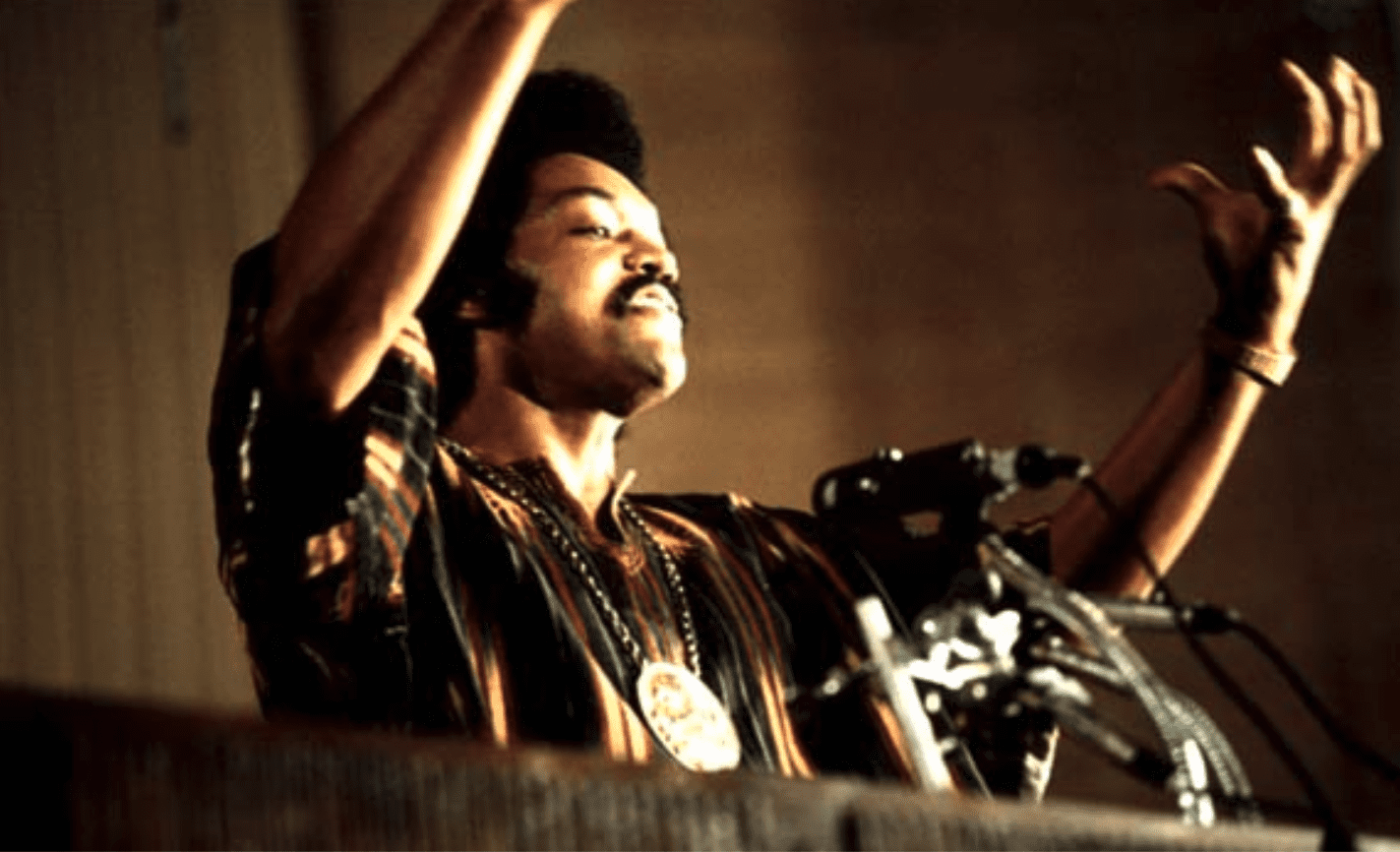The Residue of ‘72

However 1972 was different. Gary was hosting the first National Black Political Convention! African Americans from all over the country were converging on the city to decide what political direction should be taken going forth for African Americans. The Convention was the brain child of Mayor Richard G. Hatcher, the country’s first African American Mayor of a major US city. It included people of color from every Black organization and every walk of life. It was a historical “meeting of black minds” to frame an agenda for people of color to follow going forward. For me, however, it meant dividing my time between supporting my classmates and fulfilling my true interest: the advancement of my people.
Even at my young age, I had been involved politically in my community. I’d participated in the election of Mayor Hatcher, walking the streets of Gary, passing out literature. Working on phone banks in the campaign headquarters. In fact, I even devised my own campaign strategy for reaching young people in an attempt to encourage them to get their parents to vote for Mayor Hatcher. I passed out lollipops covered with “Hatcher For Mayor” stickers to my classmates who agreed to ask their parents to vote for Mayor Hatcher. Politics was a part of me! It was “in my blood” coming naturally from both of my parents. Two years later my dad became Gary’s first Deputy Mayor, serving under Mayor Hatcher.
So, from the moment it was announced that the Convention would be held in Gary, at my high school, I was ecstatic. There was a lot of work to be done and I participated in the planning for the event!
Because Gary did not have enough hotel rooms to accommodate the hundreds of people that would attend, it was necessary for the attendees to stay in the homes of Gary’s citizens. That took a lot of coordination and phone calls. While this seemed initially an inconvenience, it proved to actually provide an invaluable interaction for those attending the convention. They were able to have one-on-one time together as they processed the day’s events.
As the date approached, I became even more excited! The year 1972 was a pivotal time for Blacks. We were living out what it meant to be Black and Beautiful. Our natural hair styles and dashikis allowed us to show America that we were proud of who were. This mindset carried over into the convention. It was an exclusive meeting, for Blacks only, to meet and to determine our own destiny. Not everyone was happy about that decision. The white press certainly wasn’t and there were Blacks that were uncomfortable as well. There were Black elected officials that made the trip to Gary, in order to be able to say to their constituents they came, but they never ventured out of their hotel rooms, afraid they might be caught on camera. They didn’t want to be forced to explain their attendance to the whites who contributed money and control to their campaigns. Although they did exist, they were few in number.
There were hundreds in attendance, who came together with purpose! They came to Gary because they recognized the need for a document that would outline our next steps, politically.
I was torn between being a 17 year old, who felt obligated to support my classmates, who played on the basketball team, and being a part of history. I made the only decision I could make at the time. I broke all sound barriers traveling to and from Purdue University, where I supported my school’s basketball team, then rushing home to the Convention–one of the perks of having youth on my side!
However, when I returned home and walked into the packed gymnasium and saw Black People of every hue, from every state, voicing their concerns for me and every Black Person in America, it topped everything I had ever envisioned.
Was there agreement on every issue? Absolutely not! But that made things even more interesting and enticing for this seventeen year old who was ripe for molding. I listened intently to the discussions between the Black Nationalists and the Conservatives to the discussions on whether we should remain with the Democratic Party or venture out to form an Independent Third Party. I watched as the discussions sometimes got heated, and I loved every minute. Watching history unfold, in my hometown, in my high school, instilled pride in me that could never be duplicated. As an added bonus 1972 also became the year that 18 year olds were allowed to vote. I would be 18 by the next election!
What I experienced simply intensified my need to continue doing the political and social justice work I knew I’d been called to do. I left that Convention with a renewed sense of “who” I was as a Black person and what my obligation was to my community. And I wasn’t alone in that respect! Those who attended also left the Convention with a renewed sense of purpose. They returned to their respective communities, ran for and were elected to political offices! Our numbers of elected officials increased substantially as a result of those attending Gary’s National Black Political Convention. The residue of Gary’s Convention continues today 50 years later. Barack Obama, Kamala Harris, and so many others are direct results of the “residue of 72”!
Copyright © AAIHS. May not be reprinted without permission.